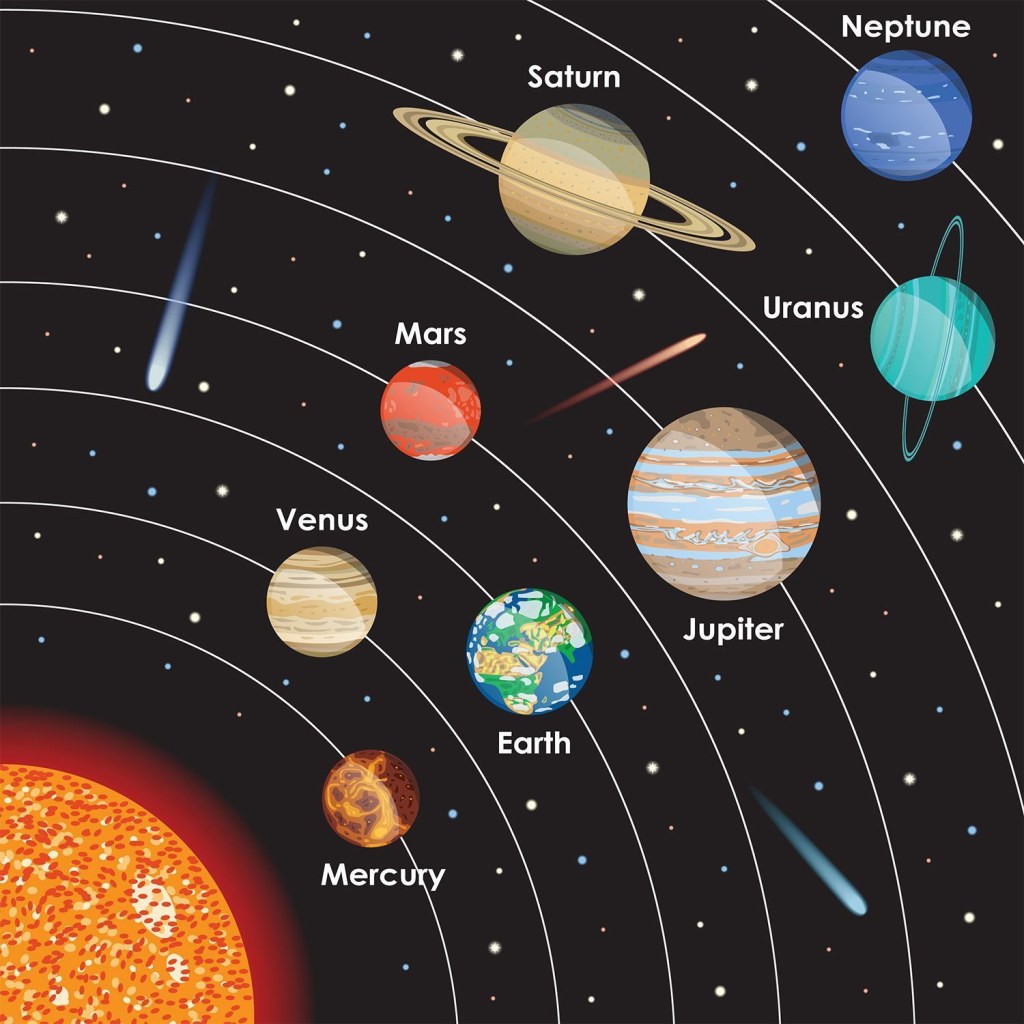Discover Incredible Planet Names: Unveiling The Wonders Of Amazing Planet Names – Click Now!
Amazing Planet Names: A Fascinating Exploration of the Universe
Greetings, Readers! Today, we embark on an extraordinary journey through the vastness of the cosmos, uncovering the intriguing world of amazing planet names. As we delve into this topic, we will discover the captivating stories behind these celestial bodies and the wonders they hold. Join us as we unveil the secrets of the universe and unlock the mysteries of these incredible planet names.
Introduction
The universe has always fascinated mankind, with its countless galaxies, stars, and planets. Within this cosmic tapestry, we find a plethora of captivating names that have been bestowed upon the planets in our solar system and beyond. These names evoke a sense of wonder and curiosity, inviting us to explore their origins and meanings. In this article, we will delve into the captivating world of amazing planet names, unraveling the stories behind them and shedding light on their significance in the grand scheme of the universe.
1 Picture Gallery: Discover Incredible Planet Names: Unveiling The Wonders Of Amazing Planet Names – Click Now!

1. Mercury 🌑: The Messenger of the Gods
Mercury, named after the Roman god, holds the distinction of being the closest planet to the sun. Its name is derived from the swift messenger of the gods in Roman mythology, reflecting the planet’s quick orbit around the sun.

Image Source: pinimg.com
2. Venus 🌕: The Morning and Evening Star
Venus, often referred to as Earth’s sister planet, is named after the Roman goddess of love and beauty. Known for its radiant appearance, Venus shines brightly in the sky as both the morning and evening star, captivating observers throughout history.
3. Mars 🌍: The Red Planet
Mars, named after the Roman god of war, boasts a distinctive reddish hue that sets it apart from other planets. This striking color, caused by iron oxide on its surface, has earned Mars the moniker The Red Planet and has fueled centuries of fascination.
4. Jupiter 🌌: The King of the Planets
Jupiter, the largest planet in our solar system, gets its name from the Roman king of the gods. As the king of the planets, Jupiter’s immense size and gravitational pull have made it a captivating subject of scientific study and exploration.
5. Saturn 🪐: The Ringed Wonder
Saturn, known for its majestic rings, takes its name from the Roman god of agriculture and wealth. These rings, composed of ice and rock particles, create a mesmerizing sight that has captivated astronomers and skywatchers for centuries.
6. Uranus 🌠: The Ice Giant
Uranus, named after the Greek god of the sky, is a unique planet in many ways. Its pale blue color and icy composition have earned it the title of The Ice Giant. With its distinct characteristics, Uranus offers a glimpse into the lesser-explored realms of our solar system.
What are Amazing Planet Names?
Amazing planet names refer to the captivating and intriguing names given to celestial bodies within our solar system and beyond. These names are often inspired by mythology, historical figures, or scientific discoveries, adding a layer of significance and fascination to the planets they represent.
Who Decides the Names of Planets?
The names of planets are typically determined by international organizations, such as the International Astronomical Union (IAU). The IAU follows a set of guidelines and criteria to ensure that the chosen names are scientifically accurate and culturally significant. These organizations collaborate with astronomers and experts to select appropriate names that reflect the characteristics and nature of the planets.
When were the Planets Named?
The naming of planets dates back to ancient civilizations, who observed the celestial bodies and assigned them names based on their beliefs and cultural significance. Over time, as scientific advancements were made, the naming of planets became more organized and standardized. Today, the names of planets continue to evolve as new discoveries are made and our understanding of the universe expands.
Where Can These Amazing Planet Names be Found?
Amazing planet names can be found throughout our solar system and beyond. In our own celestial neighborhood, the planets Mercury, Venus, Mars, Jupiter, Saturn, Uranus, and Neptune bear fascinating names that evoke curiosity and wonder. Additionally, exoplanets discovered outside our solar system often receive unique names that reflect their characteristics and the star system they belong to.
Why are Amazing Planet Names Important?
Amazing planet names serve as a source of inspiration and wonder, connecting us to the vastness of the universe. These names enable us to forge a deeper connection with the celestial bodies that surround us, fostering a sense of awe and curiosity about the mysteries of space. Furthermore, the names of planets have cultural and historical significance, reflecting the beliefs and values of the civilizations that bestowed these names upon them.
How are Amazing Planet Names Chosen?
The process of choosing amazing planet names involves careful consideration and collaboration between astronomers, scientists, and international organizations. These individuals work together to ensure that the selected names align with scientific accuracy, cultural relevance, and the guidelines established by organizations like the IAU. By combining scientific knowledge with cultural significance, the chosen names enrich our understanding and appreciation of these celestial bodies.
Advantages and Disadvantages of Amazing Planet Names
Advantages:
1. Cultural Significance: Amazing planet names provide a link between astronomy and culture, promoting a deeper understanding and appreciation of different civilizations and their beliefs.
2. Inspires Curiosity: These captivating names spark curiosity and inspire individuals to explore the wonders of the universe, fostering an interest in astronomy and scientific exploration.
3. Connection to History: By carrying the names bestowed upon them by ancient civilizations, planets serve as a reminder of our shared history and the importance of preserving cultural heritage.
4. Educational Value: Amazing planet names enhance educational experiences, making astronomy more accessible and engaging for learners of all ages.
5. Motivation for Space Exploration: The allure of amazing planet names serves as motivation for space agencies and scientists to further explore and understand the mysteries of our solar system and beyond.
Disadvantages:
1. Language Barriers: Some amazing planet names may be difficult to pronounce or understand in certain languages, potentially hindering effective communication and comprehension.
2. Cultural Bias: Depending on the cultural background of the observer, certain planet names may carry different meanings or associations, leading to potential biases or misunderstandings.
3. Limitations in Naming: The finite number of planets in our solar system restricts the availability of amazing planet names, potentially leading to repetitive or less creative naming choices in the future.
4. Ethical Considerations: In naming exoplanets, cultural sensitivity and respect for indigenous knowledge must be taken into account to avoid appropriating or disrespecting cultural beliefs.
5. Conveying Scientific Information: While amazing planet names capture the imagination, they may not always convey specific scientific information about a planet’s composition or characteristics, requiring additional context to fully understand their nature.
Frequently Asked Questions (FAQs)
1. Are amazing planet names only given to planets within our solar system?
No, amazing planet names are also given to exoplanets, which are planets outside our solar system. These exoplanets often receive unique names based on their star system and other scientific considerations.
2. How do scientists ensure the accuracy of amazing planet names?
Scientists work in collaboration with international organizations like the IAU to ensure that amazing planet names are scientifically accurate. These organizations follow strict guidelines and criteria to verify the information and significance of these names.
3. Can amazing planet names change over time?
Yes, amazing planet names can change if new discoveries are made or if further research reveals the need for a name revision. However, any changes undergo a thorough review process by scientific bodies before being officially recognized.
4. Are there any guidelines for naming exoplanets?
Yes, the IAU has established guidelines for naming exoplanets to ensure consistency and accuracy. These guidelines take into account the star system the exoplanet belongs to and other relevant scientific information.
5. How can I learn more about amazing planet names?
To learn more about amazing planet names and the fascinating world of astronomy, you can explore books, documentaries, and online resources dedicated to the subject. Astronomy societies and organizations also offer educational programs and events for enthusiasts of all ages.
Conclusion
In conclusion, the captivating world of amazing planet names invites us to embark on an awe-inspiring journey through the cosmos. From Mercury to Neptune and beyond, these names carry the weight of history, culture, and scientific discovery. By exploring the stories behind these names and their significance, we deepen our connection to the universe and foster a sense of wonder. So, let us continue to gaze at the stars, marvel at the wonders of space, and appreciate the incredible planet names that give voice to the mysteries that lie beyond our world.
Remember, the universe is vast, and there is always more to explore!
Final Remarks
Friends, as we conclude our exploration of amazing planet names, it is important to acknowledge the ongoing discoveries and advancements in the field of astronomy. The naming of planets continues to evolve, reflecting our ever-expanding knowledge of the universe. Let us embrace the wonders of the cosmos and strive to protect and preserve the cultural heritage intertwined with these celestial bodies. May our fascination with amazing planet names inspire future generations to gaze at the stars with awe and curiosity, forging their own paths of exploration in the limitless expanse of space.
This post topic: Planet Adventures
